CBN is a minor cannabinoid that has traditionally been eclipsed by its siblings, THC and CBD. Like CBD and THC, CBN appears to have considerable therapeutic benefits.
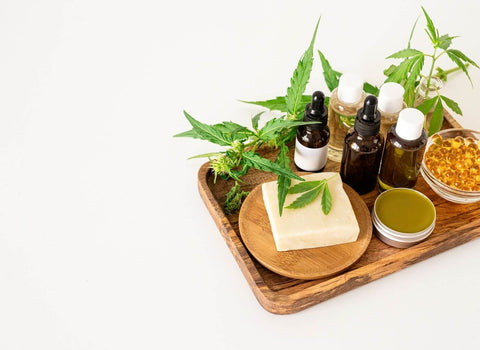
CBN is a component of cannabis that’s on the rise among users for relieving pain and promoting relaxation. It’s also known to be a helpful sleep aid at the right dose. If you’ve heard the buzz about taking CBN but are unsure about its usage and potential health benefits, this is the guide for you.
To get the benefits of CBN in your life, buy our CBN gummies, made with only the finest ingredients.
What is CBN?
Cannabinol (CBN) is a minor cannabinoid found in cannabis plants. CBN is formed by the degradation of THC. This means that when THC is aged and dried due to exposure to heat, air, and light, it converts to CBN.
CBN could be mildly psychoactive, but it would take very high doses to experience psychoactive effects.
How CBN Impacts the Body
CBN impacts the body by interacting with the endocannabinoid system. This neuromodulatory system is a network of cell-signaling neurotransmitters and cannabinoid receptors that play an important role in the body’s central and peripheral nervous systems. Neurotransmitters send messages from the brain to the cannabinoid receptors (CB1 and CB2) by binding to them. This binding process by neurotransmitters is what causes the receptors to regulate certain activities throughout the body. CB1 receptors are mostly present in the central nervous system. CB2 receptors are mostly present in the peripheral nervous system, most often working with the body’s immune cells.
The endocannabinoid system helps regulate key functions like:
- Learning and memory
- Mood and emotional processing
- Pain and inflammatory response
- Sleep
- Immunity
- Appetite and digestion
- Stress
Research indicates that CBN interacts with the endocannabinoid system by binding directly to receptors. Unlike THC, which seems to have an affinity for the CB1 receptors, CBN reacts more closely with the CB2 receptors. This makes it useful as an anti-inflammatory along with activating neuroprotective effects.
Ways to Take CBN
There are many ways to take CBN. Some of the most popular CBN products are:
- Capsules: a discreet pill form of cannabis.
- Tinctures and CBN oils: typically taken sublingually with a droplet under the tongue.
- Vapes: generally smoked with a cartridge pen. This is not recommended due to the carcinogens and other toxins consumed when smoking.
- Edibles: a long-lasting, tasty ingestible treat.
- Gummies: you can buy CBN gummies here on our website. Our high-quality cannabis products are derived from 100% American organic hemp extracts.
What are the Benefits of CBN?
Despite CBN being the first cannabinoid to be identified and isolated, scientific research about the effects of CBN is still in its early stages. However, there are many potential benefits of CBN. Human studies have shown that CBN has anti-inflammatory, antibiotic, anti-convulsant, and sedative properties.
CBN is also a well-tolerated substance that poses no risk of long-term side effects. People who take too much CBN might experience drowsiness, trouble focusing, or dry mouth, but this is not common when using the right dose. Let’s explore the different benefits of using CBN.
CBN for Pain and Inflammation
One of the many health benefits of CBN is that it’s known to be a pain reliever. A study entitled “Cannabidiol, cannabinol and their combinations act as peripheral analgesics in a rat model of myofascial pain” concluded that consuming CBN could promote pain relief for people with myofascial pain syndrome. The review concludes that CBN benefits chronic pain disorders like fibromyalgia due to its analgesic effects.
People with medical conditions like Crohn’s disease and multiple sclerosis use CBN because research shows it has the ability to inhibit inflammatory hypersensitivity and decrease muscle sensitization.
If you want to add THC to the mix, medical marijuana research validates that microdosing THC can help inflammation and chronic pain while avoiding the potential side effects of too much THC. A clinical study reveals that low doses of Delta 9 THC significantly reduced pain in participants by taking just 1 mg of THC.
CBN for Neuroprotection
A medically reviewed animal study determined that CBN could help in the treatment of health conditions like amyotrophic lateral sclerosis (ALS). CBN’s neuroprotective effects on the body are known to protect against cell damage and death. After administering just 5 mg of CBN, a delay in ALS progression occurred.
Similarly to CBN, THC also has neuroprotective properties. Low doses of THC promote neurogenesis, as well. Microdosing THC is known to reverse brain aging, so looking for a full-spectrum product with CBN is a great option for overall brain health.
CBN for Glaucoma
CBN shows promise as a possible treatment for glaucoma. Glaucoma is a group of eye diseases that cause damage to the optic nerves, causing vision loss, headaches, and blindness. In-Med Pharmaceuticals found that CBN helped preserve retinal cells that were exposed to elevated pressure, outperforming other cannabinoids. A medical review also concluded that CBN normalized the intraocular pressure (IOP) levels in the eye.
Consider microdosing edibles for glaucoma to enhance the potential therapeutic effects of CBN with Delta 9 and other compounds.
CBN for Appetite
It’s no secret that THC has been known to increase appetite in users. But for those who don’t want to experience the possible risks and side effects of THC, CBN could be a great alternative. A rat study concluded that CBN acted as an appetite stimulant and increased feeding. Medical professionals are calling for further examination of CBN’s anti-obesity effects to get a definite answer to this.
For people with breast cancer or those seeking cancer treatment, it’s common to experience unwanted weight loss due to nausea and vomiting. Using CBN could help boost appetite and promote a healthier weight.
CBN for Sleep
Researchers suggest that another benefit of CBN is to promote improved sleep, but there are limited studies being done on its isolated impact on sedation. (Read our guide about how much CBN to take for sleep.) As the potential benefits of CBN become more clear, studies indicate that CBN’s sedating effects work best for sleep when paired with other cannabinoids, like CBD and THC.
If you’re one of the 70 million people in the U.S. who experience sleep issues, our melatonin gummies for adults offer a fast-acting blend of CBD and CBN along with low doses of melatonin in all-natural strawberry flavors. This broad-spectrum product will help you fall asleep faster, stay asleep longer, and ensure you don’t feel groggy the next day. Shop our collection of melatonin gummies to get even more options for getting a good night’s rest.
Aside from CBN, CBD and THC are a match made in canna-heaven when it comes to sleep hygiene. For people struggling with issues like insomnia and circadian rhythm disorder, microdosing THC for sleep with CBD and other cannabis compounds could be just what you need.
Our Sleep Plus gummies offer a full-spectrum experience with just 2 mg of THC added to our unique, terpene-rich hemp blend.
CBN and The Entourage Effect
Though you can purchase an isolated CBN product, the benefits and effectiveness of CBN appear to be enhanced in the presence of other cannabis compounds. This cannabis synergy is known as the entourage effect, a scientific concept that vouches for taking low doses of THC with CBD, CBN, and other cannabinoids, flavonoids, and terpenes to achieve longer-term effects. Science is calling for more human studies to look deeper into whether or not the entourage effect is real, but existing animal studies seem to validate it.
To reap the benefits of the entourage effect, one would need to take a full-spectrum cannabis product. Full-spectrum means the product contains a wide variety of cannabis compounds, including trace amounts of tetrahydrocannabinol (THC). THC is the main psychoactive component in cannabis and is often a reason people are reluctant to use the product. But medical cannabis research suggests that microdosing THC with other compounds is the best way to safely consume cannabis without worrying about feeling impaired.
Microdosing is the practice of taking very small amounts of a substance to get its benefits without getting "high." Thankfully, users who want to experience the enhanced benefits of CBN through the entourage effect only need a very small amount to make that happen. Doses as low as 5 mg of Delta 9 could offer you mild euphoria without causing full-blown psychoactivity.
Our collection of full-spectrum gummies contains low doses of quality hemp THC made in compliance with the 2018 Farm Bill to maintain federal law throughout the US. All of our edibles have been third-party lab tested for quality assurance to ensure you know you’re consuming clean and healthy ingredients.
What’s the Difference Between CBD vs. CBN?
Cannabidiol (CBD) is the main non-psychoactive compound found in cannabis. One of the major differences between CBN vs. CBD is that CBD is extracted directly from the plant, whereas CBN is a THC byproduct usually synthesized in a lab. That’s why CBD and THC are considered major cannabinoids and CBN is considered a minor one.
CBN and CBD are both known for improving sleep, increasing appetite, and reducing chronic pain and inflammation. CBD’s benefits are more researched and well-known than those of CBN. Using CBD products has become popular for those with mental health issues.
People appreciate the benefits of CBD for stress and anxiety, too. Though taking CBD oils for the treatment of anxiety is a common consumption method, microdosing edibles for anxiety is the way to go because they’re generally the easiest to dose.
Like our Relax gummies in fresh watermelon flavors, with 25 mg of CBD and 100 mg of Ashwagandha, relaxation is just an edible away.
Product QUIZ
Need help deciding what product is best for you? Take our quiz, just three questions until your perfect match!
Is CBN legal?
CBN is considered federally legal as long as it is derived from the hemp plant. The 2018 Farm Bill created a legal distinction between hemp and marijuana that made it possible for cannabis to be produced across the United States. Hemp is classified as cannabis that contains no more than 0.3% THC by dry weight, making it safe for federally legal consumption.
Will CBN Cause a Failed Drug Test?
CBN could lead to failed drug tests. Drug screenings check for the presence of THC metabolites in the human body. If your CBN product is full-spectrum and contains THC, you could fail your test. Even in trace amounts, THC could result in a positive drug test. If you’re using a broad-spectrum product, meaning it contains other cannabinoids but no THC, then you shouldn’t worry about failing drug test screenings.
CBN FAQ
Is CBN good for anxiety?
Research about CBN’s isolated benefits for anxiety is still in its infant stage. Studies show that CBN could be more beneficial for anxiety when taken with other cannabinoids, terpenes, and flavonoids for the entourage effect.
How is CBN different from CBD?
CBD is a major non-psychoactive compound in the cannabis plant (cannabis sativa, cannabis indica, and cannabis ruderalis). CBN is a minor cannabinoid that forms from the oxidation of THC. When THC dries and ages, CBN is formed. CBN could also be considered a mildly psychoactive compound, potentially causing intoxicating effects at extremely high doses. When it comes to using CBD or CBN, the two have some similar benefits, like reducing pain and improving sleep.
What does CBN do to the brain?
CBN interacts with the endocannabinoid system, a cell-signaling system in the brain that regulates the functionality of many important processes like mood, appetite, learning, memory, and pain. CBN binds directly to the CB1 and CB2 receptors in the ECS to help activate them and their responses in the body.
How much CBN should I take for sleep?
Even though CBN is a well-tolerated substance, it’s best to start with low doses of CBN for sleep. You can increase your dose slowly over time if need be.
Does CBN help with inflammation?
A study using a rat model of myofascial pain concluded that cannabidiol, cannabinol and their combinations significantly aided in reducing pain and inflammation. The review notes that CBD, CBN, and their combinations act as peripheral analgesics for inflammatory relief.
Resources
Cannabinol - an overview | ScienceDirect Topics. (n.d.). | ScienceDirect Topics. https://doi.org/10.1016/bs.apha.2017.03.004
Cannabidiol, cannabinol and their combinations act as peripheral analgesics in a rat model of myofascial pain - PubMed. (2019, August 1). PubMed. https://doi.org/10.1016/j.archoralbio.2019.05.028
Anthony, A. T., Rahmat, S., Sangle, P., Sandhu, O., & Khan, S. (2020, September 14). Cannabinoid Receptors and Their Relationship With Chronic Pain: A Narrative Review. PubMed Central (PMC). https://doi.org/10.7759/cureus.10436
Medical Marijuana for Treatment of Chronic Pain and Other Medical and Psychiatric Problems: A Clinical Review - PubMed. (2015, June 1). PubMed. https://doi.org/10.1001/jama.2015.6199
Almog, S., Aharon‐Peretz, J., Vulfsons, S., Ogintz, M., Abalia, H., Lupo, T., Hayon, Y., & Eisenberg, E. (2020, June 12). The pharmacokinetics, efficacy, and safety of a novel selective‐dose cannabis inhaler in patients with chronic pain: A randomized, double‐blinded, placebo‐controlled trial. European Journal of Pain, 24(8), 1505–1516. https://doi.org/10.1002/ejp.1605
Cannabinol delays symptom onset in SOD1 (G93A) transgenic mice without affecting survival - PubMed. (2005, September 1). PubMed. https://doi.org/10.1080/14660820510030149
Cannabinol modulates neuroprotection and intraocular pressure: A potential multi-target therapeutic intervention for glaucoma - PubMed. (2022, March 1). PubMed. https://doi.org/10.1016/j.bbadis.2021.166325
Cannabinol and cannabidiol exert opposing effects on rat feeding patterns - PubMed. (2012, September 1). PubMed. https://doi.org/10.1007/s00213-012-2697-x
Cannabinol and Sleep: Separating Fact from Fiction - PubMed. (2021, October 1). PubMed. https://doi.org/10.1089/can.2021.0006
Russo, E. B. (n.d.). Taming THC: potential cannabis synergy and phytocannabinoid-terpenoid entourage effects. PubMed Central (PMC). https://doi.org/10.1111/j.1476-5381.2011.01238.x
Farm Bill. (n.d.). Farm Bill | USDA. https://www.usda.gov/farmbill
nama CBD FDA & Legal Disclaimer
Our products are not intended to diagnose, treat, cure, or prevent any disease. They are not a replacement for prescription medications and have not been evaluated by the Food and Drug Administration (FDA).
The information provided on this website does not, and is not intended to, constitute legal advice or any statements of the status of any laws. Any information, content, and materials available on this site are for general informational purposes only, and are not intended to be relied upon for any purpose.
Readers of this website should contact their attorney to obtain advice with respect to any particular legal matter including decisions on what products are, or are not, legal to sell, possess, or consume. No reader, user, or browser of this site should act or refrain from acting on the basis of information on this site without first seeking legal advice from their own counsel in the relevant jurisdiction.
Only your individual attorney can provide assurances that the information contained herein – and your interpretation of it – is applicable or accurate for your particular situation. Use of, and access to, this website or any of the links or resources contained within the site do not create an attorney-client relationship between the reader, user, or browser, and website authors, contributors, contributing law firms, or committee members and their respective employers.
More articles
About
Learn
Join us on this journey

© Copyright 2025 nama Products LLC. All Rights Reserved.
†These statements have not been evaluated by the Food and Drug Administration. These products are not intended to diagnose, treat, cure or prevent any disease. All information presented here is not meant as a substitute for or alternative to information from health care practitioners. Please consult your health care professional about potential interactions or other possible complications before using any product.
††The information provided on this website does not, and is not intended to, constitute legal advice or any statements of the status of any laws. Any information, content, and materials available on this site are for general entertainment purposes only, and are not intended to be relied upon for any purpose.
123 John Doe Street
Your Town, YT 12345
Store Hours
Sun: Closed
Mon-Fri: 9:00 - 17:00
Sat: 10:00 - 13:00
What to expect at pickup
Closed
Closing at 5pm
Closing at 5pm
Closing at 5pm
Closing at 5pm
Closing at 5pm
Closing at 1pm

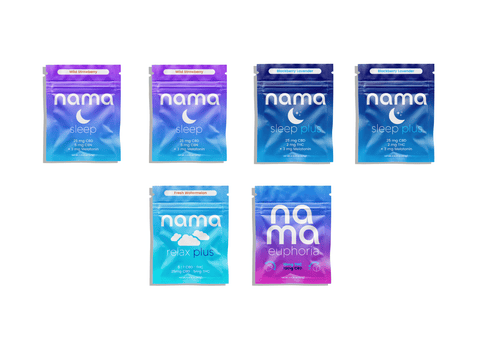
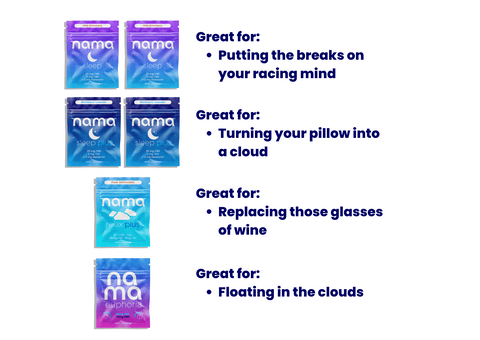
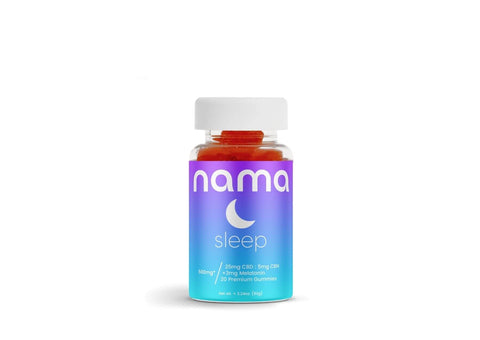
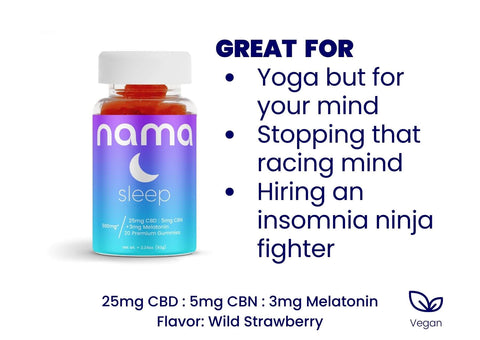
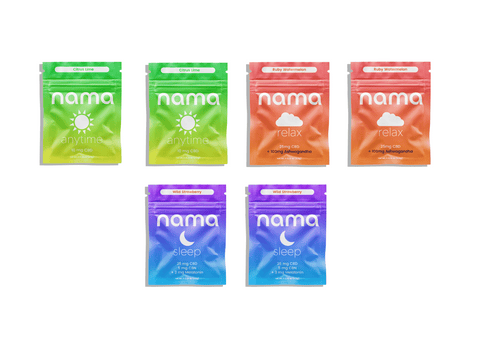
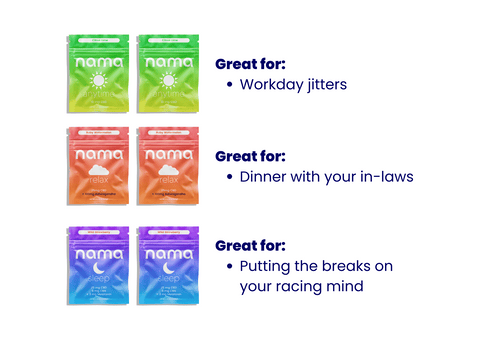


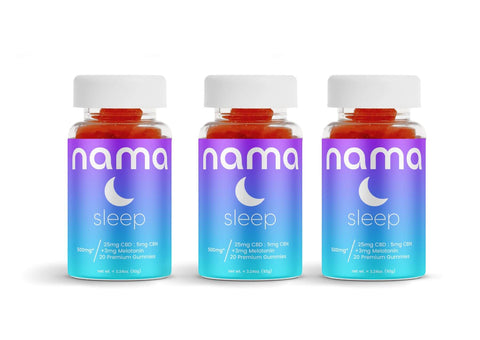
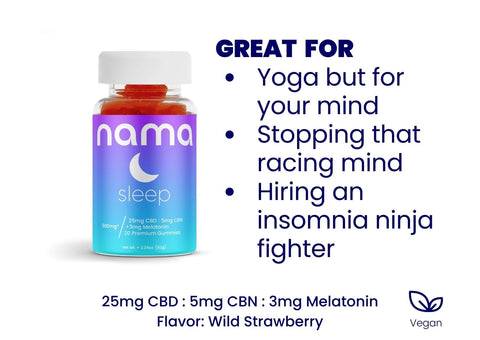
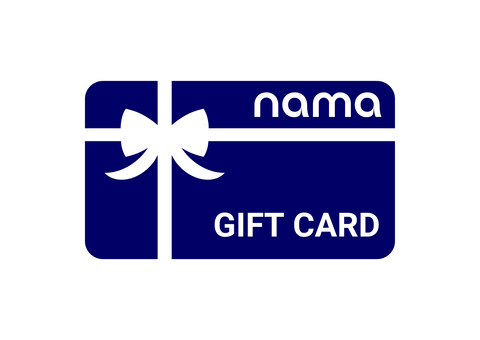







![Buzz Packs™ [THC and CBD Powder Drink Mix]](http://www.namacbd.com/cdn/shop/files/nama_buzz_packs_thc_drink_pack_white_background.png?v=1741884660&width=480)
![Buzz Packs™ [THC and CBD Powder Drink Mix]](http://www.namacbd.com/cdn/shop/files/Buzz_Packs_Label.png?v=1741884660&width=480)


![Buzz Drops™ [THC Drink Drops]](http://www.namacbd.com/cdn/shop/files/nama_thc_buzz_drops.png?v=1711412866&width=480)
![Buzz Drops™ [THC Drink Drops]](http://www.namacbd.com/cdn/shop/files/buzz-drop-wine-comparison.png?v=1736882023&width=480)



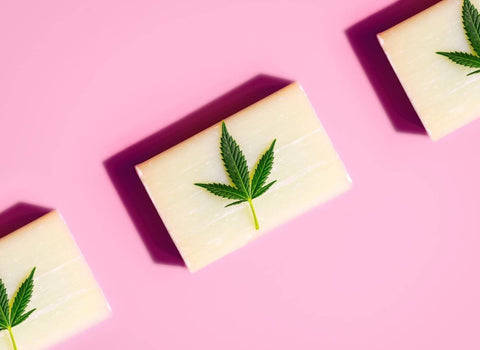


Comments (0)
There are no comments for this article. Be the first one to leave a message!